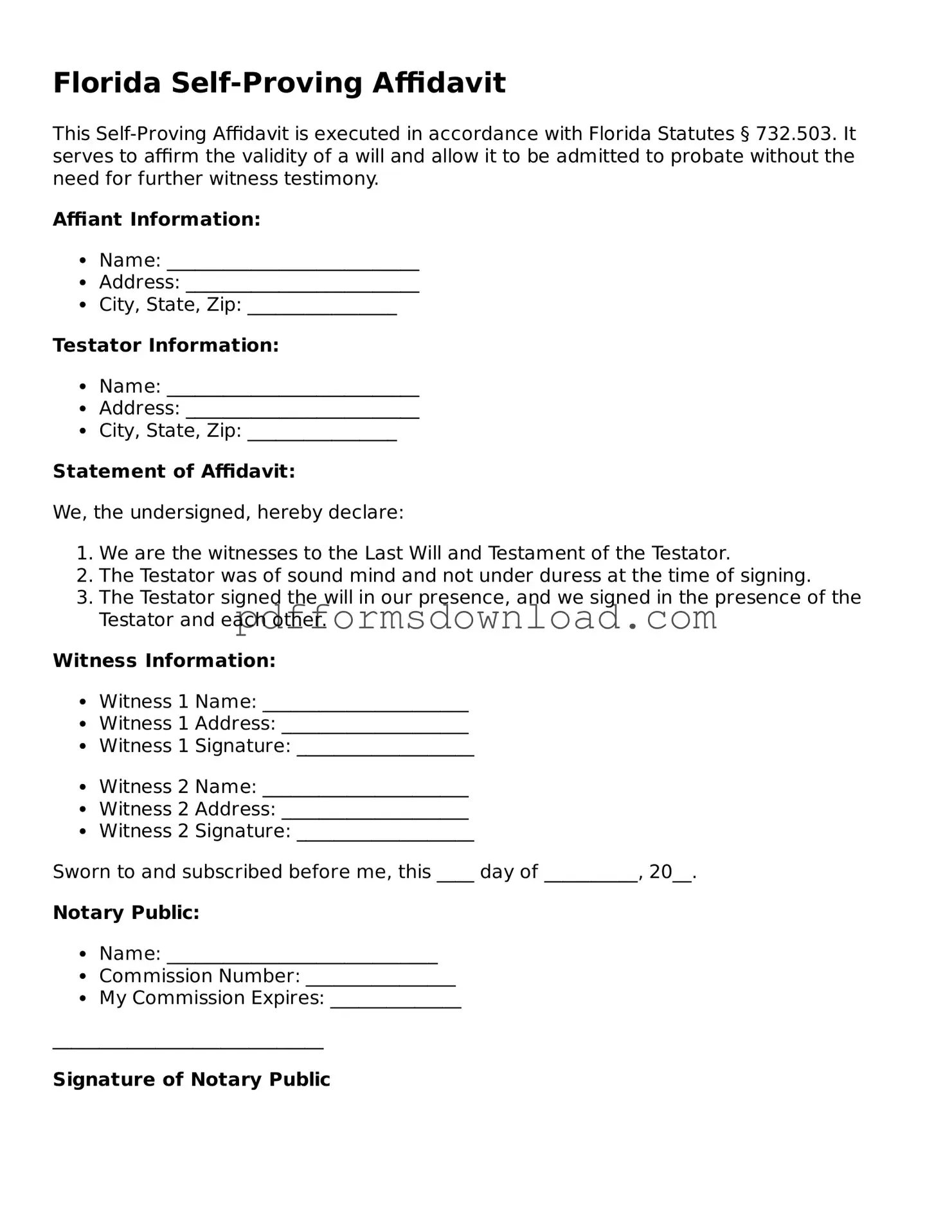Printable Florida Self-Proving Affidavit Form
The Florida Self-Proving Affidavit is a legal document that allows a testator's will to be accepted in court without the need for witnesses to testify about its validity. This form streamlines the probate process, ensuring that the intentions of the deceased are honored efficiently. To ensure your will is self-proving, consider filling out the form by clicking the button below.
Make This Document Now

Printable Florida Self-Proving Affidavit Form
Make This Document Now

Make This Document Now
or
Free PDF File
Your form is almost ready
Complete your Self-Proving Affidavit online — edit, save, and download easily.